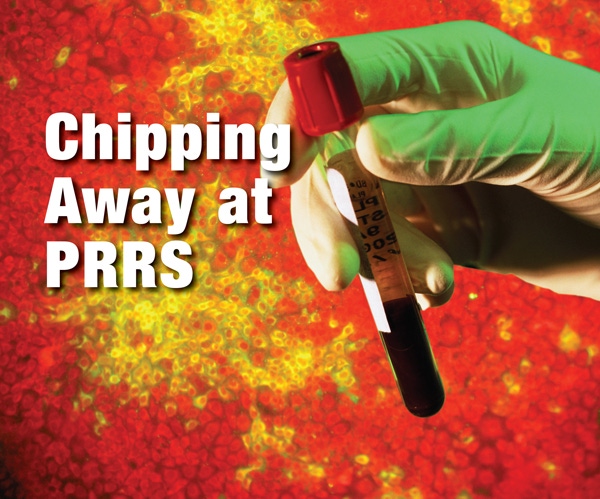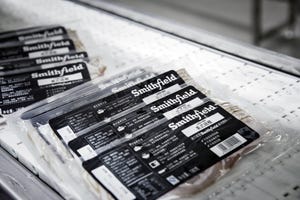January 10, 2013

A team of researchers at Iowa State University (ISU) has received a $3 million grant to study genetic resistance to the costliest disease threatening the pork industry and transfer this technology to the industry.
The researchers, led by Jack Dekkers, an ISU professor of animal science, will seek to identify genes in pigs that make them less susceptible to porcine reproductive and respiratory syndrome (PRRS), a viral disease that costs U.S. pork producers about $664 million a year.
The translational genomics grant comes from the U.S. Department of Agriculture’s National Institute of Food and Agriculture. The ISU researchers will spearhead a five-year collaborative effort that also includes researchers at Kansas State University, the University of Minnesota, the U.S. Department of Agriculture, the Roslin Institute in Scotland and industry collaborators. This project builds on previous and ongoing work by the same team of researchers.
A sow infected with PRRS is less likely to carry offspring to term and will have more stillborn piglets. Young pigs affected by the disease suffer respiratory distress that slows their growth and makes them more susceptible to other diseases.
Dekkers says PRRS costs the pork industry more money than any other disease. PRRS has proven damaging to pork producers in part because there are many variant strains of the virus. Because of this variation, vaccines have done little to control the disease, Dekkers says.
“It’s doubtful that we’ll find a silver bullet to cure PRRS any time soon,” he says. “But in previous work, we have demonstrated that we can find genes that cause a pig to be less susceptible to PRRS, which will allow producers to breed pigs to have that particular genetic makeup.”
But identifying those genes can be a tricky process, and researchers have to be certain that breeding for a specific gene that makes pigs less susceptible to PRRS doesn’t have the unintended consequence of making the animal more vulnerable to another disease, Dekkers says. The team will address these and related questions with the grant.
The team submitted its application to the USDA in March. In addition to Dekkers, the team includes ISU animal science professors Christopher Tuggle, Kenneth Stalder and James Reecy, who is also the director of the ISU Office of Biotechnology. Iowa State faculty will lead the project and conduct most of the data analyses, while the other institutions will conduct the experimental portion and be involved in the extension and education functions of the proposed work.
“This grant is going to help us continue our work in finding a way for the pork industry to get a handle on a costly and difficult-to-control disease, and we’re excited to move forward with our collaborators,” Dekkers says.
You May Also Like


